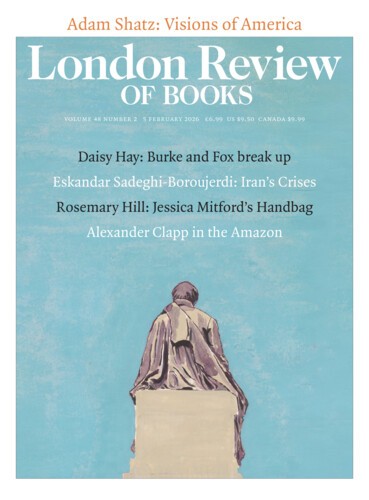Visions of America
Adam Shatz
‘The very word “America” remains a new, almost completely undefined and extremely controversial proper noun,’ James Baldwin wrote in 1959. ‘No one in the world seems to know exactly what it describes, not even we motley millions who call ourselves Americans.’ Is it a dream or a nightmare, a democratic paradise or a bastion of white supremacy and religious...

